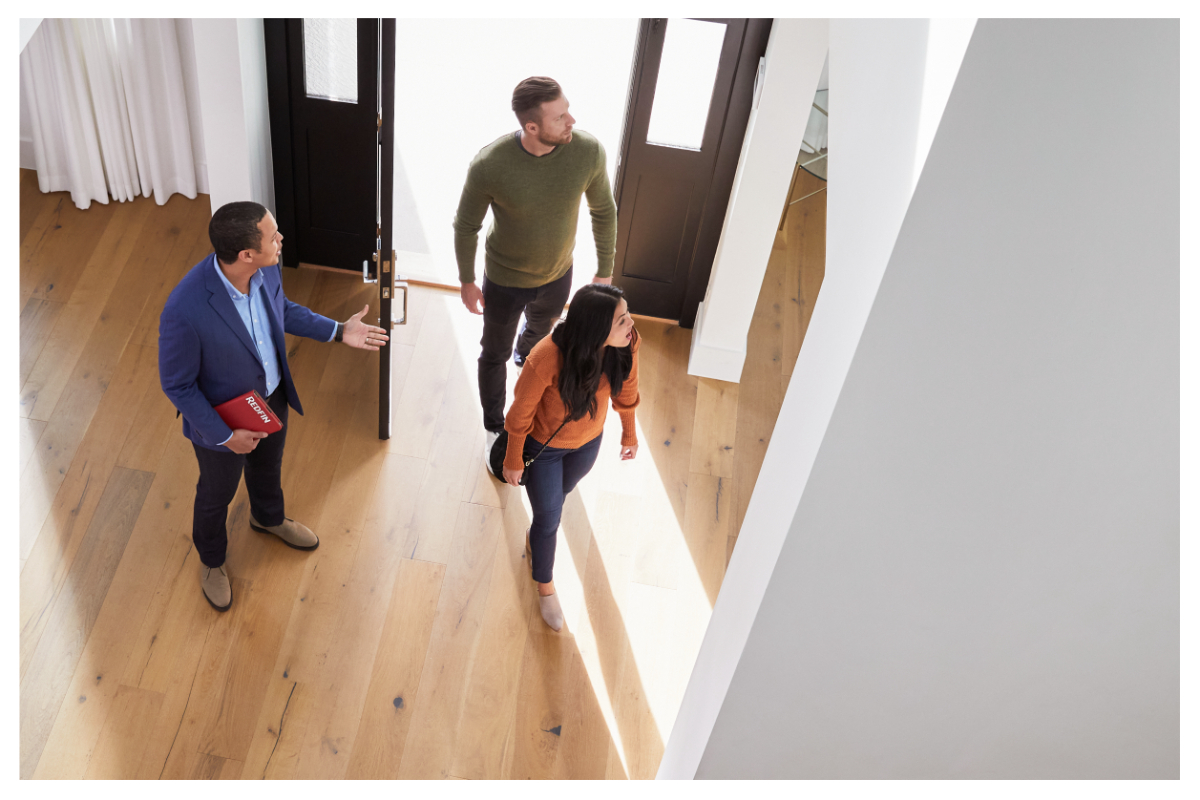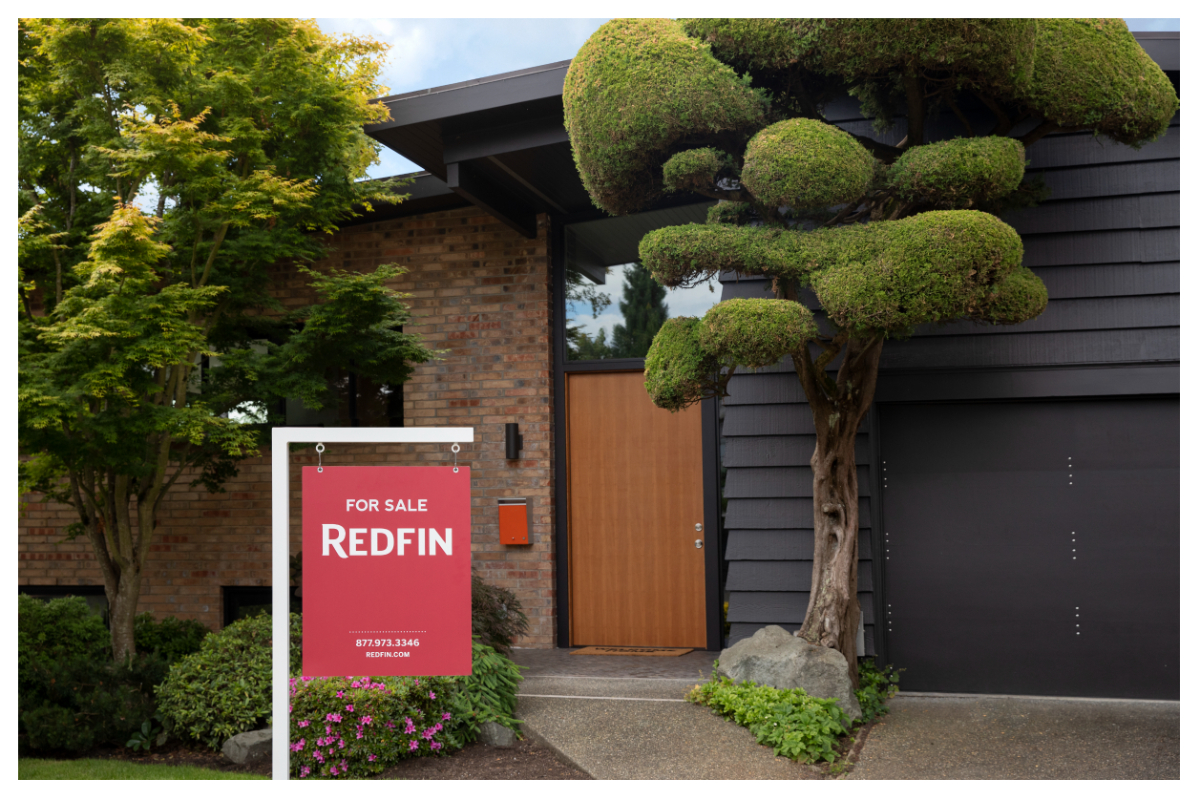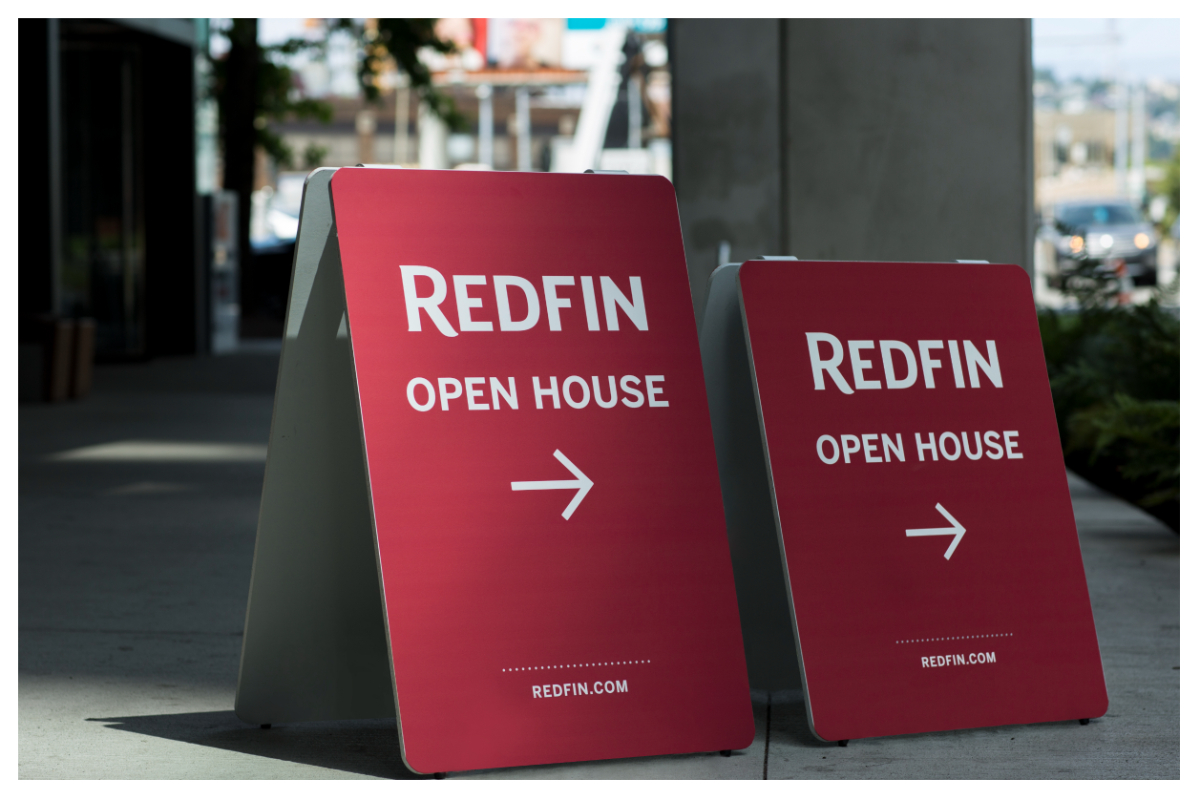What is an Open House? A Complete Guide for Buyers and Sellers
Odds are, if you are a first-time homebuyer, you’ve probably heard the term “open house.” Especially since Covid-19 restrictions are relaxing throughout the country, more and more sellers are opting to host open houses again. But what is an open house? What are the pros and cons of an open house? Check out this guide below to learn all about open houses, whether you’re buying or selling a home, to figure out if hosting an open house is right for you.

What does “open house” mean in real estate?
Open houses are one of the many steps of the home buying or selling process and are a great opportunity for buyers to check out properties and for sellers to attract potential buyers and generate interest in their homes. They are public, informal events hosted by the real estate agent working with the home seller also called the listing agent. They are usually a couple of hours long and potential buyers can drop in to view the home at any time during the open house.
How do open houses work?
When you first get to an open house, you will likely be greeted by the listing agent. They may ask you to sign in with your name, email, and possibly phone number. Then, you are free to look around the house, exploring all the different areas. There may be water or very light snacks. Almost always, the seller will not be at the open house as it may prevent potential buyers from being able to imagine themselves in the house.
After the open house, the listing agent may follow up with you to see if you liked the house using the information you provided on their sign-in sheet. If you are no longer interested in the home at that point, you can definitely say so. Or, if you want to set up a private tour or write an offer, you can do that too.
Open houses vs private home tours
Open houses are unique because the seller or listing agent can show the property to many people at the same time. And, as a potential buyer, you don’t have to set up an appointment to view the home. You can simply drop by during the hours of the open house. There may also be other real estate agents present. For private home tours, also referred to as private showings, the buyer sets up a one-on-one appointment with the listing agent meaning that you will be the only one viewing the property at that time.
After attending an open house, you may want to see more of the home afterward. Or maybe you still have some questions about the property, and you aren’t positive about putting in an offer yet. In this case, you can set up a private showing with the listing agent, even if you have already attended an open house. This will give you more one-on-one time with the listing agent and the house, and it can allow you to better imagine yourself in the home without a bunch of other people around.

Open houses for first-time homebuyers
What you can expect as a homebuyer
Open houses can get busy with foot traffic coming through the door, and there are some rules you should know before attending your first one.
Come to an open house prepared
There are a number of etiquette guidelines when it comes to open houses. And if you are serious about buying a house, you want to make sure you are prepared to look like a great buyer for any home you visit. Make sure to know what to look for when touring homes, and come prepared to the open house with the following:
- Basic background info about the home
- A list of questions to ask the listing agent
- A tape measure if you want to make sure your furniture fits in the home
- A way to take notes, such as a notebook and pen or using a smartphone to take videos, pictures, and even your own commentary on each room
When you attend an open house, avoid bringing:
- Children, unless they are older and can help ask questions
- Pets
- Drinks
- Snacks
The reason you don’t want to bring the above to an open house is that they may disrupt other visitors’ viewing of the home, distract you from seeing the home’s full potential, or even damage the home.
Open house etiquette
Some other rules you should follow when attending an open house are to change into booties if they are offered. Or, take your shoes off if the listing agent requests it.
And, of course, respect the homeowners’ privacy. Don’t look in their medicine cabinet or their dresser. But, it is ok to open their pantry or towel closet to see what kind of storage the home offers.
In general, it’s best not to hold the listing agent hostage as you tour the home. Make sure they are available to chat with other people too. On the flip side, if you are interested in the home, make an effort to introduce yourself to the listing agent. And, of course, try to leave room for other people to tour the home. So, avoid blocking doorways and talking too loudly so that other people can experience the home too.
Following these basic rules will help your case as a buyer and will allow other people to picture themselves in the home as well.
Benefits and downsides of open houses
Especially for first-time homebuyers, there are tons of benefits to attending open houses. Sure, you can see specific houses you like in person to see if they’re “the one.” And, you can also create a list of must-haves, wants, and other things you care about in a home. For example, you may go to an open house where the home has tons of built-ins, and you may love it. Add “built-ins” to your want list for your future home. Or, maybe you find a home with eight-foot ceilings or small, cramped spaces that just don’t work for you — add them to your “no-go” list.
There are a few downsides to open houses though. Sometimes, it’s difficult to view yourself in a home with lots of other people there, which is common at open houses. And, you may not get as much time with the listing agent as you would like to ask questions. One more downside is that open houses usually create lots of interest in a home. So, if you want to write an offer, you may have more competition after an open house.

Open houses for first-time home sellers
If you haven’t sold a home before, an open house can be intimidating. There is a good amount of work that goes into an open house. Read on to find out how to prepare your home for an open house and what the benefits and downsides are from the seller’s point of view.
How to prepare your home for an open house
Preparing your home for an open house can be a lot of work, but it can also drum up a lot of interest in your home. The goal of an open house is for prospective buyers to be able to see themselves in your home.
Below is a checklist of tasks to prepare your home for sale you may want to consider doing before having an open house:
- Complete any repairs you may have been putting off
- Declutter
- Remove excess furniture
- Remove personal photos
- Remove children’s artwork and projects
- Remove pet accessories, dishes, and toys
- Hide valuables
- Add flowers throughout your home
- Make up beds in the home with fresh sheets
- Make sure there are no foul or moldy smells in your home
- Stage your home
Additionally, it can be useful to add a special touch to your open house. Potential buyers may go to multiple open houses in one day. And at the end of the day, you want them to remember your house best. If you want to feature your gorgeous backyard, you could set up your barbecue and outdoor living space for potential buyers to show off the space.
Your listing agent may also bring water or snacks to the open house, especially if the drinks or food are made by local businesses they want to highlight. However, offering these items to guests has become less common since Covid.
Lastly, you should make sure that you and your family members and pets have somewhere else to be for the entire duration of the open house.
Benefits and downsides of open houses
Open houses allow people to get a feel for your home. And they can do it in a way that allows them to ask the listing agent questions without the pressure of having the listing agent hovering over them for the whole tour. This can lead to offers on your home. Plus, your agent only has to be at your home for a few hours instead of scheduling tons of individual home tours. And that means you only have to clean up your home once.
There are some downsides to open houses though. Although it is extremely uncommon, some sellers worry that visitors will steal from or damage their home. If you are especially concerned about this, it’s best to have minimal objects in your home and ask your agent to monitor guests closely.
Another downside is that some guests may not be qualified to buy your home. Or, maybe they are just curious neighbors who just want to see what the inside of your home looks like. Nevertheless, most people at your open house will be interested in buying. So, all the effort you put into tidying your home will almost certainly be worth it.

When should you have an open house and for how long?
The best time for an open house is off-peak times when people are less likely to be working or attending their kids’ activities. Most real estate agents will host open houses on Saturdays and Sundays and on weekday evenings. Sunday afternoons are a particularly common time to host open houses.
Most listing agents recommend having an open house shortly after your home hits the market, but later open houses can help generate interest too. You can also host an open house after a price decrease in order to find new people interested in your home.
You may wonder: how long is an open house? Most open houses are one hour to three hours long, depending on when they are. For example, evening open houses may only be an hour. Weekend open houses maybe three or even four hours long. Remember that your open house can only be as long as you and your family (and your pets) can stay out of the house and as long as your real estate agent’s schedule allows.
How to promote your open house
While some people may think that promoting open houses is more complicated nowadays, Covid has popularized new ways of promoting and offering open houses. For example, it is common for listing agents to live-stream an open house. Live-streaming allows buyers to view the home in a new light, not just through photos. Listing agents can offer open houses over video conferencing apps such as Zoom as well, which means you can view a home even if you are out of town.
Other ways to promote your open house are to show videos or photos of your home via social media platforms such as Facebook, Instagram, Snapchat, and TikTok. You can of course show photos and videos of your own home. But your listing agent may be able to advertise your property via their social media accounts and their company’s social media accounts too in order to motivate buyers to place an offer.
What is a good turnout for an open house?
Because there are so many unique homes on the market, it is hard to say what a good turnout for an open house is. Sometimes, you may get fewer people at an open house if your home is at a particularly high price point. Or, you may get more people touring your home but they could just be curious neighbors, or people that are not serious buyers. Most listing agents aim to have about 10-20 people visit a home at an open house. But, the real way to see if an open house is a well-executed event is to see how many people submit offers or request individual tours afterward.
Do open houses actually help sell a home?
Although open houses can be a lot of work to put on, they are a great tool for sellers. And, they are an accessible, non-intimidating way for homebuyers to get to know the housing market. If you are considering attending or hosting an open house, chat with your real estate agent to see what they think and if they have any tips to offer.
How to find open houses near you
There are plenty of ways to find open houses near you. You can ask your agent and your network if there are any upcoming open houses you should attend. You can also use Redfin to find tons of open houses near you. To do this, go to Redfin’s open houses near me page.
On the page, input your desired location of where you want to search for open houses.

Then, input your price range and click search.

From there, you will be taken to a map page with a list of all open houses happening within your search criteria.

Redfin does not provide legal, tax, or financial advice. This article is for informational purposes only and is not a substitute for professional advice from a licensed attorney, tax professional, or financial advisor.
The post What is an Open House? A Complete Guide for Buyers and Sellers appeared first on Redfin | Real Estate Tips for Home Buying, Selling & More.
